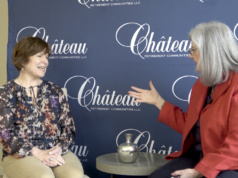Dr. Shawn Weiss joins Suzanne on the Answers for Elders Radio Show to talk about Intellectual Wellness, one of the eight fundamental principles of senior wellness featured in this summer’s Vitality Revolution podcast series. We want to stimulate our brains and be life-long learners. You can make small changes, but having a sharp mind takes more than just exercising our brains.
Intellectual wellness is defined by the University of Colorado at Pueblo: “Keeping one’s mind engaged, stimulated, and challenged is key to maintaining memory and cognitive presence as we age. This may be as simple as reading, doing puzzles to stay sharp. But the more colorful pursuits such as art, music, and even theater, it is never too late to start and no one has ever regretted diving into the joys of living at whatever their age.”
Dr. Shawn says, “We talked about all these wonderful foundational principles of health. That makes it easy for everyone to break it down, and you can make small changes in each one. Certainly from an intellectual health standpoint, you realize it’s not just about working your mind. All of these other areas really do feed into the concept of intellectual wellness.
“The people I’ve worked with over the last 26 years, I ask [about what they used to do creatively]… ‘I used to paint. I used to be a musician.’ Why not start involving yourself again in those things that brought you much joy. Especially music, especially with instruments, painting. I have had patients who I didn’t even know used to paint. Once I found out, guess what we were doing? We were painting, and it just brings so much joy when you can do that. But then also try new things and try things that you’ve always wanted to do. It is never too late. That’s such a common misconception, ‘I’m just too old to do it.’ That’s been debunked, if you look at any study, yes, you can do that. And it’s really critical to involve yourself in those types of activities in order to deserve your mental capacity and actually build new pathways. We can still build new pathways, and the concept of neuroplasticity is super critical as we get older.”
- More about Dr. Shawn Weiss
- Book a free consultation with Dr. Shawn
- Book an appointment with Dr. Shawn
- Thrive over Sixty: Dr. Shawn’s 60 days to optimal health program
- Senior Health and Wellness website
- Rockstar Wellness with Dr. Shawn
- Hear more podcasts with Dr. Shawn
- Vitality Revolution
- More podcasts on Intellectual Wellness
- Check out our affiliate podcast Alzheimer’s Speaks













